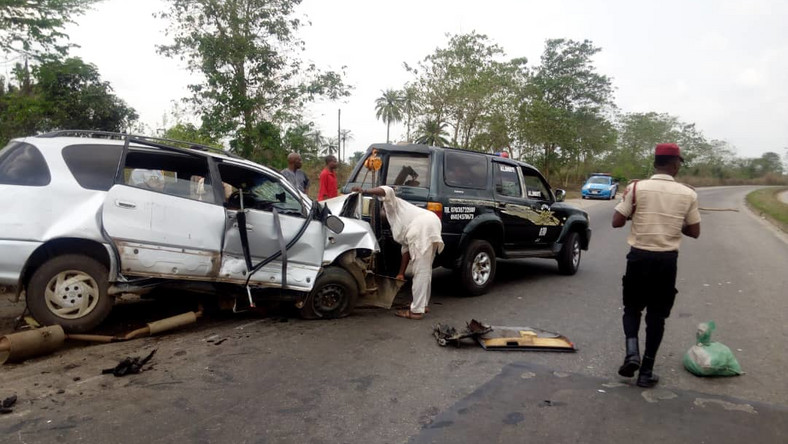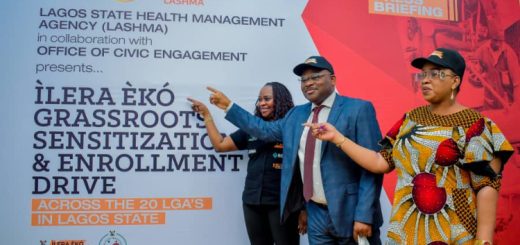How to Prevent and Handle Common Domestic Accidents in Nigeria
Road accidents are an ongoing issue in Nigeria, resulting in over 40,000 preventable deaths annually. From dangerous driving to poorly maintained vehicles, many factors precipitate these crashes.
And the aftermath is seldom properly handled – delays in reporting, inadequate insurance, and poor emergency response tend to aggravate matters after accidents occur.
But with caution and diligence at an individual level along with systemic interventions, these mishaps can be prevented and mitigated substantially.
This article examines practical techniques to avert common road mishaps within Nigeria’s domestic context. It also provides guidance on appropriate post-accident protocols concerning insurance and emergency response. Additionally, the government’s role in improving road safety is explored – from enhanced infrastructure to better legislation and emergency services.
HOW TO PREVENT AND HANDLE COMMON DOMESTIC ROAD ACCIDENTS IN NIGERIA
Road accidents are an unfortunate reality in Nigeria, with over thousand lives lost to it annually. However, many of these accidents are preventable with caution, preparation, and insurance.
This article provides tips on avoiding common road mishaps within Nigeria and handling them appropriately when they occur, especially concerning insurance claims.
DRIVE DEFENSIVELY
Defensive driving is operating your vehicle cautiously to prevent crashes, even if other road users are careless or reckless. It involves being attentive, anticipating potential hazards, and taking preventive action.
Here are defensive driving tips:
- Obey all traffic rules and speed limits, even if others don’t. Speeding escalates crash severity.
- Allow ample distance between you and the vehicle in front, in case of sudden braking.
- Scan surroundings actively – check rearview mirrors every 8-10 seconds. Blind spots contribute to accidents.
- Signal properly and early enough before turning or switching lanes. Give other motorists time to react.
- Be very vigilant at intersections, as most crashes happen here. Slow down and double-check before crossing.
- Avoid distractions like mobile devices. Only use devices hands-free if absolutely necessary.
- Drive with dipped headlights during the day for better visibility.
- Plan routes ahead of time to avoid getting lost or confused. You can use GPS if available.
MAINTAIN YOUR VEHICLE
The truth is that cars in poor condition cause countless mishaps in Nigeria. Routine maintenance prevents most mechanical issues leading to accidents.
Follow these maintenance tips:
- Check tire tread depths regularly, as worn-out tires can puncture or burst while driving. Replace below 1.6mm depth.
- Ensure tire air pressure meets vehicle specification. Over/under-inflation degrades grip. Use a standard pressure gauge.
- Check brake fluid, antifreeze coolant, engine oil, and other fluid levels routinely. Top up if low.
- Replace used windshield wipers to maintain visibility during rainfall.
- Service your vehicle according to the manufacturer’s timeline, not just when issues arise.
- Repair identified faults promptly, however minor. Small defects can cause huge accidents.
IMPROVING INFRASTRUCTURE
Nigeria is a developing country and lacking behind in terms of infrastructures development.
Many road accidents result from poor infrastructure like potholes, obscured road signs, lack of markings, narrow roads etc.
The government can help by:
- Increasing budget allocation for road construction and maintenance.
- Employing durable materials suited for local climate and traffic volumes.
- Installing clear lane markings, reflectors, traffic lights, streetlights, caution signs etc.
- Widening accident-prone roads and highways to allow overtakes.
- Building special facilities like pedestrian bridges and barricades around schools.
GET ADEQUATE CAR INSURANCE
Car insurance is mandatory in Nigeria. Beyond legal compliance, insurance adequately prepares you financially for a crash.
Consider these insurance tips:
- Purchase comprehensive motor insurance, not just third-party coverage. It offers wider protection.
- Increase your coverage limits appropriately as vehicle value depreciates. Review annually.
- Pick reputable insurers and study policy fine prints to avoid surprise exemptions.
- Include accident riders if possible – they increase benefits for hospitalization post-crash.
- Avoid insurance gaps between policies – accidents during such periods attract penalties.
WHAT TO DO AFTER AN ACCIDENT
Mishandling road mishaps can diminish injury compensation and insurance claims significantly.
Here is a checklist if involved in a crash:
- Stop your car immediately and switch on hazard lights to prevent a secondary collision. Pull over to a safe spot if possible.
- Check for injuries and call the emergency helpline if required. Provide first aid within your ability until paramedics arrive.
- Notify the police promptly. Delayed accident reporting could mean reduced culpability for the offender later.
- Document the accident comprehensively – take photos of damage, injuries, car positions, road conditions, etc. Get witness contacts.
- Exchange insurance details completely with all parties involved – policy numbers, provider contacts, driver’s licenses, etc.
- Inform your insurer immediately about the loss. Late notifications could lead to claim repudiation over policy terms breach.
- Do not admit fault or attempt settlement with the other motorist, even if polite. This could undermine compensation later.
- If the vehicle is immobilized, call your insurance provider for immediate roadside assistance and towing services to limit further loss.
Most road mishaps are preventable with caution, preparation, and insurance diligence. Drive defensively, maintain your vehicle routinely, get adequate coverage, and respond appropriately post-accident. Stay safe on Nigerian roads!
CONCLUSION
As we have already said, road accidents lead to considerable loss of life, assets and productivity in Nigeria annually. However a bulk of these mishaps can be preempted through defensive driving, routine vehicle checks, adequate insurance coverage and suitable post-crash procedures.
And at a policy level, upgrades to road infrastructure, traffic administration and emergency response can stem crashes further. It ultimately requires prudence from all stakeholders – government, insurers, road developers and individual drivers – to enforce safety practices that will save numerous lives.
The onus lies on Nigerians collectively to address this issue through their actions and demands. With diligence, road accidents can be cut down tremendously going forward.
Staying safe on the roads must be a multi-agency priority across the nation.
We wish you safety on Nigerian roads.



